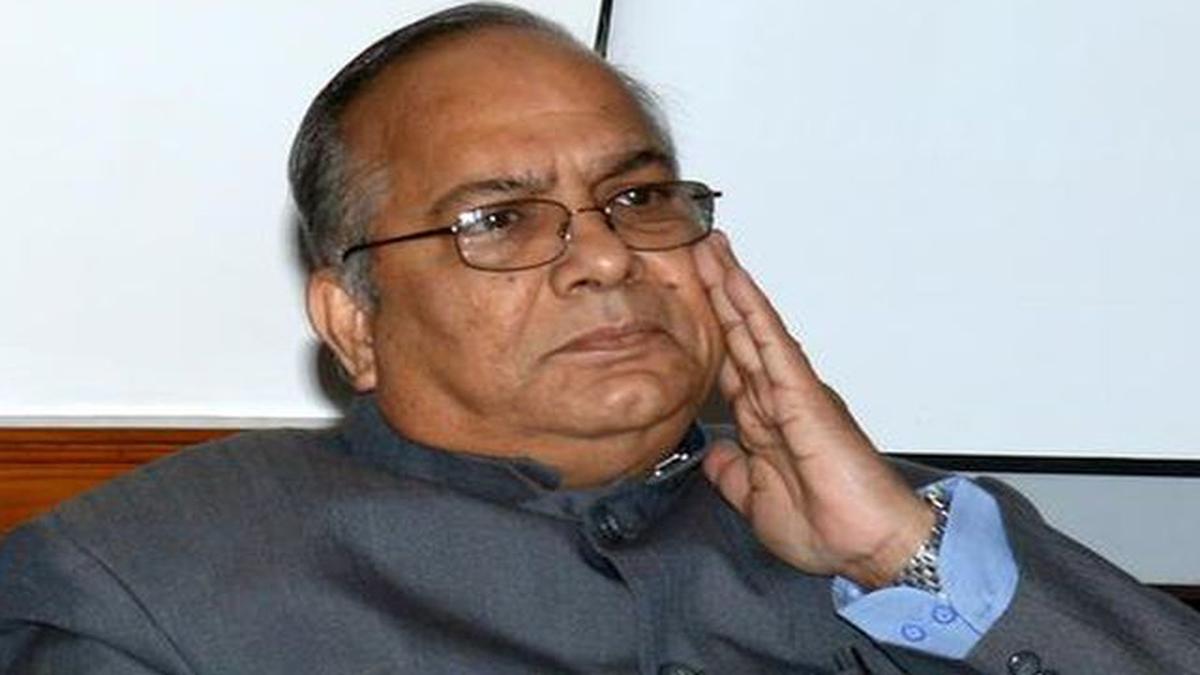SC seeks number of FIRs registered in instant triple talaq cases
Triple talaq ceased to exist on August 22, 2017, when the Supreme Court declared it void.

Known for his bold judgments, being pro-poor and strongly supportive of the underprivileged classes, Justice Anang Kumar Patnaik, retired from the Supreme Court in 2014. He served as the Chief Justice of different state high courts like Chhattisgarh, Madhya Pradesh and Orissa. He was part of the two-judge Bench constituted by former Chief Justice of India (CJI) SH Kapadia for hearing all cases related to the 2G spectrum case. In 2018, he headed the Central Vigilance Commission that conducted the inquiry on former CBI Director Alok Verma.
Justice AK Patnaik shared his views in an exclusive interview with Chandrani Banerjee touching upon various topics from the CJI not being part of the panel to elect Chief Election Commissioner (CEC) and Vigilance Commissioner (VC) to the probity of Supreme Court and High Court Judges.
Advertisement
What do you think about the exclusion of the Chief Justice of India (CJI) from the panel that was meant to elect the Chief Election Commissioner and Election Commissioners?
Advertisement
Exclusion is not the right word. He will not be part of the panel any longer. The Supreme Court’s March order clearly stated that this arrangement was meant till the time Parliament does not bring in a law. So, this arrangement was interim and not permanent. (The Law Minister Arjun Ram Meghwal introduced the Chief Election Commissioner and other Election Commissioners (Appointment, Conditions of Service and Term of Office) Bill, 2023, in the Rajya Sabha in the recent monsoon session. The Supreme Court had given the judgment in March in the absence of a law to regulate the appointments of Chief Election Commissioners).
Are you convinced that it will ensure a transparent selection of Chief Election Commissioner (CEC), Election Commissioners (ECs) and Vigilance Commissioners (VCs)?
Yes, absolutely. I personally feel that the Chief Justice of India (CJI) is above board. There should not be any controversy in this regard. The words- removal, excluded –are not correct and not used in the right spirit.
These decisions should be left to the political class. Before March, there was a selection procedure in place that was followed. Till the Supreme Court ruling came into effect, the Chief Election Commissioner was recommended by the government and approved by the President. Now, the leader of Opposition (LoP) has been brought in, so both the ruling party and the Opposition can express their views on the appointment. I do not think that there is a gap if there is complete representation from both sides.
Supreme Court transferred Gujarat Court Judge Justice Hemant Prachchhak to Patna High Court for better administration of justice. Your views?
Nothing surprising. Every organisation works on a certain set of rules. Rules are meant to be followed. They have not been made to be broken. If there is no system or rules in any organization, will it function in a result-oriented manner? We have a certain internal system and that is for everyone to follow. If someone takes the liberty to do something otherwise, then there will be measures that would be taken to straighten the system.
The transfer of Justice Prachchhak is fair, you would say?
If someone is not following the rules of a set system while being a part of it, then there is a problem. If one is not a part of it, then there is no binding on that individual. However, if someone is willingly part of a system, he/ she has to follow it. The judges are supposed to be above board. So, I would say transfer of judges is part of the set process, nothing unusual.
There are many instances of Judges of the Supreme Court and High Courts being involved in corruption. What is the mechanism check it?
There is a proper internal system of checks and balances in place for the Supreme Court and High Court judges. It is not that they are above the law. And they are constantly monitored. So it is not that there is no system. The internal system is constantly at it.
Is the internal system of checks and balances enough to monitor the judges?
The internal system is good enough. However, every system requires overhauling. The internal system was set up many years ago. Things have changed. New concepts are in place. Technology has turned the world upside down. Now, virtual hearings take place without bags full of papers. So the system should be upgraded as per the need, and it certainly deserves a relook. The relook is not always criticism but it is a healthy practice to save the system. It helps to keep the good of the system intact, while adding the new advantages, making it relevant in the current context. And that helps it to run smoothly.
A parliamentary panel recommended that the sitting judges declare their assets. Your views?
This is not new. I was an insider. I stayed in the system and I know this recommendation is okay. Again, there is an internal system that asks the judges to declare their assets in detail, that is why I said it is not new. However, I do not see anything wrong in the recommendation. It is okay if the judges have to declare their assets. As I said earlier that an upgrade and relook of the internal system is required.
What measures should be taken to speed up the justice delivery system in the country?
Things are moving at a good pace. Virtual courts are already functioning. The people handling the system are highly capable and visionary. So there should be more revolutionary steps that we would witness. The digitization of courts is a big step towards speeding up the justice delivery system.
Advertisement